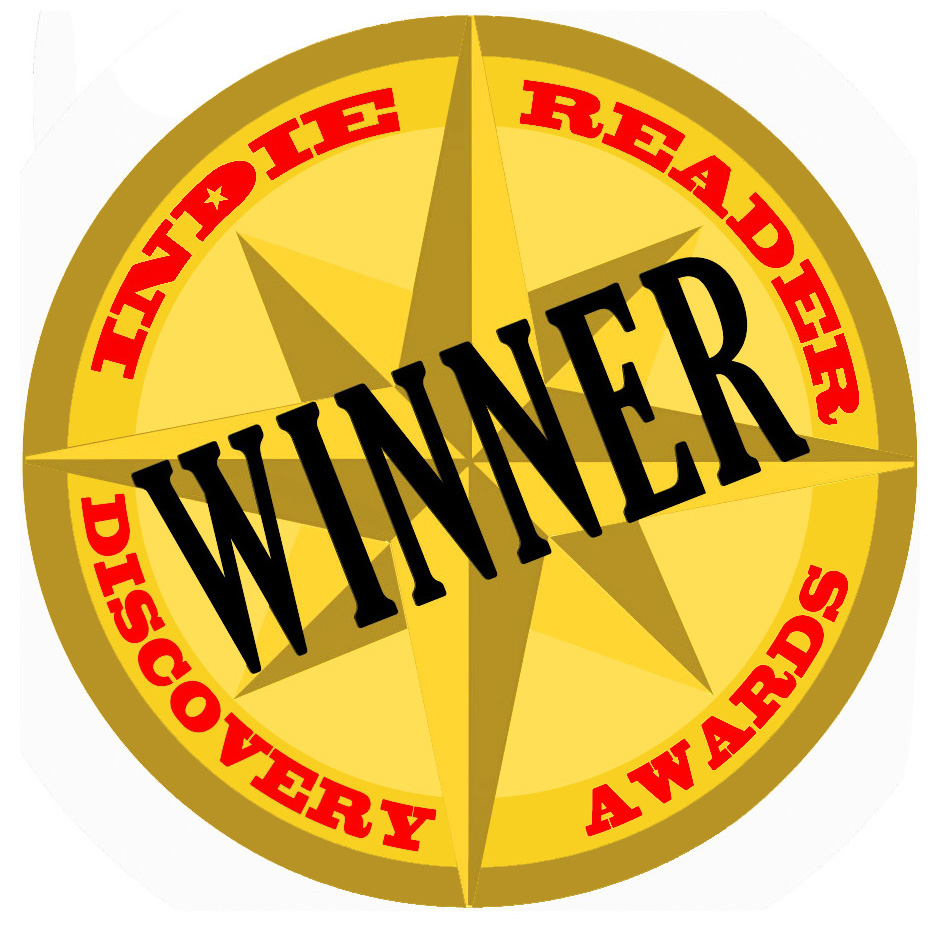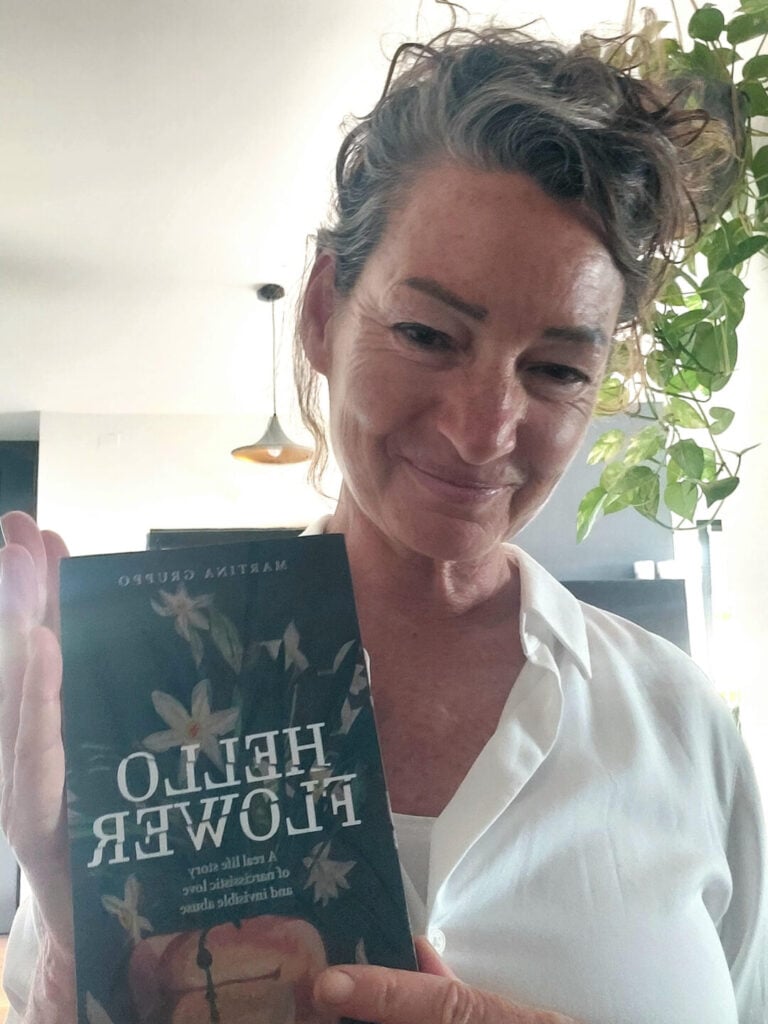
Hello Flower was the winner in the BEST BOOK COVER/Non Fiction category in the 2025 IndieReader Discovery Awards, where undiscovered talent meets people with the power to make a difference.
Following find an interview with author Martina Gruppo.
“It is hard to describe the feeling when you open an email and start reading the magical words ‘Congratulations, your book won…’
The rush of emotions covered everything from pride to validation to squealing childish delight. Writing a memoir is an obviously personal endeavour and self-publishing my work meant I had to override any doubts or insecurities I had about my writing, the cover and even the subject.
Receiving that email was confirmation I had done the right thing, it was the teacher’s gold star for my hard work, a stamp of approval and acknowledgement and frankly I still can’t quite believe it.”
What is the name of the book and when was it published?
Hello Flower – May 25th 2024
What’s the book’s first line?
It was March 2011 and I was on my way to Gatwick airport.
What’s the book about? Give us the “pitch”.
The brutally honest story of how a seemingly strong and independent individual can be broken down by hidden manipulation and coercive control. Self deprecating with touches of biting humour and relatable anecdotes about love and dating, that never detracts from the overall heartbreaking description of how a covert narcissist works their poisonous ‘magic’.
What inspired you to write the book? A particular person? An event?
It was a combination of both – a failed marriage, an overwhelming sense of loss and emptiness for the person I used to be, and an unsettling doubt about who I had been married to. I also felt an intangible nagging feeling, an uneasy sensation in the pit of my stomach as I uncovered lie after lie after lie, driving me towards a visceral need to understand the truth. Little did I know that by writing about it would be like opening Pandora’s Box.
What’s the most distinctive thing about the main character? Who-real or fictional-would you say the character reminds you of?
As a memoir the main ‘character’ is me, and so parts of it were very difficult to write as I could clearly see how, over time I was changing as I was being manipulated. The distinctive thing is that you would never imagine it could happen to someone like me but I have since learnt that I am exactly the type of person most susceptible to this sort of abuse.
What’s the main reason someone should really read this book?
Narcissistic abuse is a subject frequently talked about but often misunderstood. It has become far too easy to assign labels to cover any and all bad or erratic behaviour, to use certain terms to describe a multitude of sins; ‘gaslighting’, ‘projection’, ‘love bombing’ but harder to understand if and when they are happening to you. I didn’t see it, I missed the warning signs over and over so I wrote this book to let others know they are not alone, it is not their fault, it is appalling and you can survive it.
Did you design the cover yourself? If not, who did and how did you find them (they did another cover you admired, they were recommended, etc)?
I had a very specific idea which centred around the flower Narcissus, this is where the idea for the title came from as I explain in the prologue. The cover itself came about serendipitously because the illustrator I was working with for the cover and the typesetting (Paul Hawkins found on Reedsy) is married to an incredibly talented artist – Linn Hart – after several attempts trying to explain what I wanted on the cover I took a photograph of narcissi picked from my garden and I sent them with a request for a grey background and ‘pops’ of yellow within the flowers. Linn worked her magic and the cover is based on her original drawing of the flowers and Paul came up with the rest including the cracked lettering, it was perfect.
What, if any, elements of the book did you want to convey in the cover design?
The feeling of being slowly suffocated slowly but surely and always disguised by a ‘charming’ mask – in the cover this is demonstrated by that tight closed fist gripping those delicate stems. Those flowers represent everyone and anyone who has ever felt their light fading as a result of a smiling, manipulative controlling bully, they don’t die at once, parts of them remain upright, strong and even pretty but other parts wilt and bend, until there is nothing left. It took my breath away, and still does because it was exactly how I felt.
When did you first decide to become an author?
I have loved writing since primary school, creative writing stories were always my ‘thing’. Becoming an author was something I wanted to do but it seemed unrealistic, a far away ‘one day’ dream, but then what happened, happened and it felt as if the decision was out of my hands, it needed to be written properly, it wasn’t so much about me becoming the author more about the story which had to be told.
Is this the first book that you’ve written?
Yes, I have written blogs before and since the book I write regularly on substack but an actual book, no, this is my first.
How much time do you generally spend on your writing?
My book was originally a blog, I used that to help with the timeline but really I had to start from scratch. It took me approximately eight months from start to publication date. I spend 3-4 days a month writing a post for substack which involves a lot of editing before I am finally happy.
What’s the best and the hardest part of being an indie?
Having the autonomy to decide what you want to write is very liberating, especially on such a personal subject and I was incredibly lucky to have found a phenomenal editor on Reedsy (Katie McKay) who helped mould me into a better writer and motivated me too, I was incredibly lucky. The downside has to be the marketing side which is another word for selling yourself. As a first book it didn’t matter how good I believed it to be, it was always going to be subjective until it was out there – fortunately, thanks to some great reviews and plenty of sales I am now starting to believe that people like how I write and that in itself makes the marketing less of an uphill struggle.
Would you go traditional if a publisher came calling? If so, why?
That’s a tricky question! On the one hand I never believed I could have achieved as much as I have independently over the last eighteen months, there are so many resources available to new writers, and if you have the will, patience and motivation you can make it happen. On the other hand, being traditionally published feels more professional, as if I was being taken seriously by a body of experts who would help me in the entire writing experience. That would be quite incredible and something I would love to have the opportunity to consider.
Is there something in particular that motivates you (fame? fortune?)
There is something (everything) about writing which makes me feel as if I am in the right place doing the right thing. I love words, making them work is my motivation. It really is that simple.
Which writer, living or dead, do you most admire?
I wish I could say something highbrow here such as Scott Fitzgerald or Jack Kerouac but the truth is from a very young age I read anything I could get my hands on – I loved Colleen Mc.Cullough’s Thorn Birds and A Woman of Substance by Barbara Taylor Bradford, but despite my mum having the entire back catalogue of Jean Plaidy’s historical novels I never read a single one. I recently finished the food critic Grace Dent’s memoir called Comfort Eating and it stayed with me for a long time.
Which book do you wish you could have written?
Lessons in Chemistry by Bonnie Garmus, I loved everything about it from the period in time to the science based cooking descriptions, the characters, the sadness and the outstanding humour.
